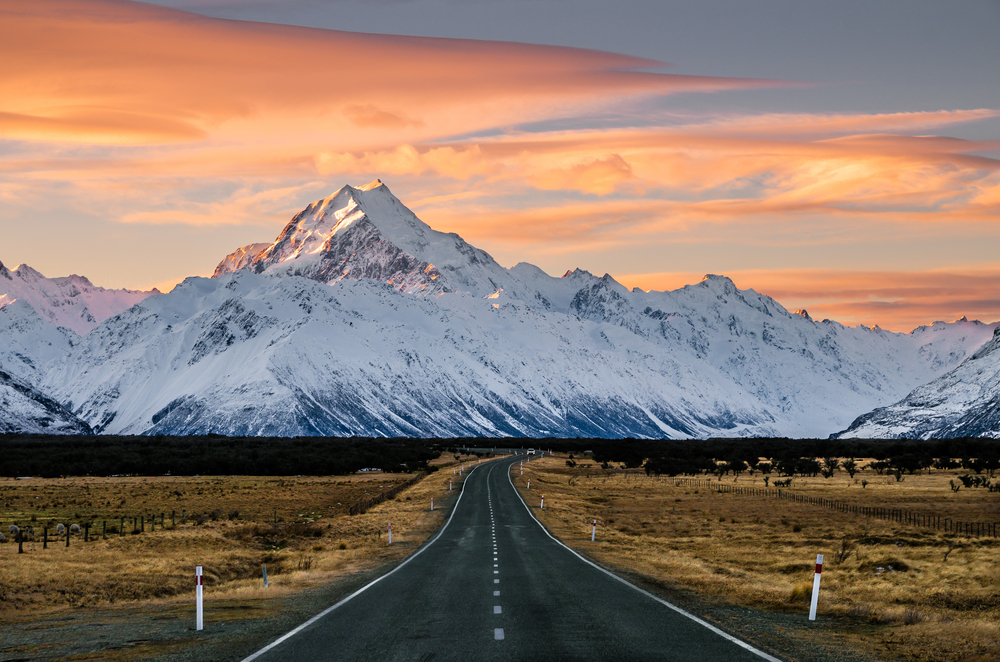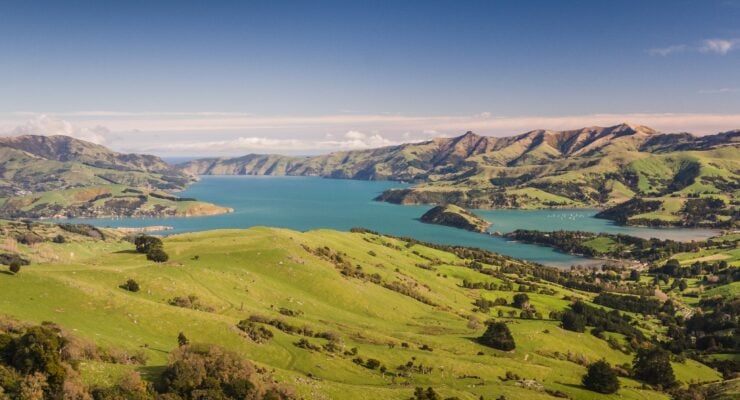Are you thinking about getting a Working Holiday Visa to New Zealand (see full tutorial)?
If that’s the case, then in the coming weeks or months, you will need to start preparing for your new adventure! This checklist focuses on what you will need to have ready on the day of your departure to New Zealand.
#1 – Your plane ticket
We always recommend that you wait until you receive your WHV before buying a plane ticket.
To find the best price and itinerary, you can compare options on the internet using tools such as Google Flights. If you already know that you will be returning to your home country in a couple of months for a special occasion (e.g. wedding, celebration, holidays, etc.), consider booking a roundtrip, as those are often cheaper than booking two separate one-ways. Remember that as a WHV holder, you can leave and re-enter New Zealand as many times as you wish.
#2 – Your passport
For your arrival in New Zealand, your passport must be valid for at least the next 15 months. Don’t board your flight with a passport that will expire sooner than that!
If you renewed or replaced your passport after the issuance of your visa and before your initial departure to New Zealand, you must contact New Zealand authorities because your WHV is an e-visa tied to your original passport.
#3 – Your printed e-visa
Though your visa is an electronic visa that is integrated into your passport, you should still print it out, as mentioned at the end of our guide New Zealand WHV 2024 tutorial: how to apply for your Working Holiday Visa.
#4 – Your New Zealand Traveller Declaration
In the 24 hours prior to your arrival in New Zealand, you will have to fill out the New Zealand Traveller Declaration. As of 2023, you can do this online, on an app or on their website. To see more details on how to do this, check out How to fill in your New Zealand Traveller Declaration online. If your journey to New Zealand takes longer than 24 hours due to layovers, make sure to wait until you’re in your 24-hour window before filling it out.
#5 – Your WHV health insurance
Health insurance is mandatory for most citizenships to participate in a working holiday in New Zealand. Unless you are from the UK, Ireland, Japan or Malaysia, you will need health insurance that covers healthcare expenses, hospitalisation and repatriation.
Immigration agents rarely check your health insurance upon arrival in New Zealand but random checks can absolutely happen to anyone. We still strongly recommend all readers to buy health insurance even if its not mandatory for you; in case of an accident or emergency, insurance can help you avoid paying a huge medical bill out of pocket.
We have been recommending Globe WHV since 2005. Its health insurance provides numerous advantages:
- A competitive price of €722.40/year (€404.40/year if you are coming from the EU) or the equivalent in your currency.
- It’s one of the only providers that will reimburse you for unused months of coverage if you end your working holiday early (if there are at least two months left of your contract; €20 fee is assessed). So there is no risk involved when buying insurance for the entire duration of your planned stay.
- Dedicated interface for your health-related claims.
- Easy claims process: your doctor doesn’t need to fill out any complicated paperwork. You just need to provide your consultation report for submission.
- The Globe WHV team is available by direct message to answer all your questions.
#6 – Proof of sufficient funds
Bring your bank statement, a screenshot of your balance or something of that nature from your bank to prove that you have at least the equivalent of NZD4,200 in your name (i.e. sufficient funds to purchase a return ticket if you don’t already have one). You may be asked to provide this evidence before or upon your arrival into the country.
#7 – Housing booked for the first night(s)
You should book housing in advance for your first few nights. There are many options available to you: hotel, Airbnb, youth hostel, etc.
To reserve a hotel or hostel, you can try Booking or Hostelworld. They allow you to quickly compare prices to find something that fits your needs. If you are looking for amenities that only a furnished home can provide, then consider Airbnb.
#8 – Cash, cards and money transfers
You can consider a mix of strategies:
- Bring your bank card(s) from home. With modern security features, credit or debit cards should work without risk of being blocked for use abroad.
- Bring some NZ dollars in cash by visiting your home bank. Alternatively, you could also just bring some cash in your home currency and exchange it once in New Zealand. However, try to avoid unfavourable exchange rates at places catering to tourists, such as airports. Know that currency exchange bureaus charge higher fees than banks, though they provide instantaneous service.
- Opening a local bank in New Zealand typically requires a local address, so you may not be able to do this immediately upon arrival. However, you can first open an account with Wise. Our partnership with Wise grants you a first money transfer with zero fees. You just need to provide a phone number to open an account. You can even do this in advance of your flight to New Zealand; no need to wait until arrival.

















 Français
Français English
English




0 comments
{{like.username}}
Loading...
Load more